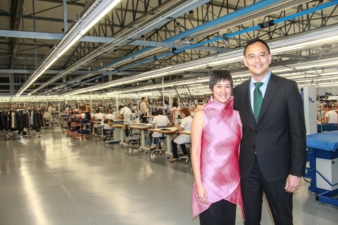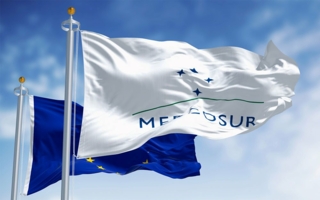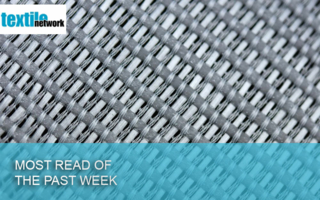01/07/2015 — auf Deutsch lesen
N.S.T. Apparel: The time had come
The story of N.S.T. is one of entrepreneurship at its best, of smart foreign investment and risk management, of corporate values and – of making success happen in the highly competitive global apparel market. Now “the time had come for diversification“.
Initially, the realisation of Stephanie and Lawrence De Los Santos, second generation CEOs of the vertical Filipino textile and clothing firm N.S.T. Apparel Group, was that the time had come for diversification. At a total of three manufacturing sites around the capital of Manila this privately owned firm currently employs approx 7,000 people.
With a share of 92 percent the United States has until now been the main sales markets for this manufacturer of womenswear, ranging from tailored garments, to denim, casual wear, T-shirts and even woven tops (total production in 2014: some 14 million garments). And essentially the US remains a key market of this very dynamic, growth-oriented supplier of renowned brands including Ann Taylor, Brooks Brothers, Ralph Lauren, Abercrombie & Fitch, Anthropologie, Nordstrom and Vineyard Vines.
“If we are to pursue further growth then this should be on promising markets,” says Lawrence de Los Santos explaining their intentions on this issue. Instead of following the principle of “competition through volume alone” pursued by many Asian firms, here their goals were clear: to enter the European market. Ultimately, the obvious approach here – of a stake holding or partnership was one that was as quickly discarded as it was devised.
To achieve this goal a logical approach was adopted but one that was also an unquestionably challenging alternative coupled with considerable investment: direct involvement, the development of a manufacturing operation on site in Europe. The location selected was Paredes, a bastion of upholstery manufacturing before the crisis also hit Portugal’s textile sector, 12,000 km away from Manila, some 65 km outside of Porto and a town boasting the sad statistic of the highest unemployment rate in the country. It was here that N.S.T. Apparel decided to build its European production site. Admittedly, ideal conditions accompanied the ambitious plans.
What can the key criteria have been to kick off the firm’s entry onto the European market from the southernmost tip of the continent, we ask the investors. “Because of its people,” is the spontaneous response. Lawrence De Los Santos mentions the excellent skills of the staff, coupled with high productivity, the highly competitive labour costs, ideal support from the Portuguese government and authorities, though also in the same breath he also mentions their shared cultural beliefs: “We share the same moral and Christian values.” At the opening of N.S.T. Apparel Portugal in May 2014, also attended by Luis Campos Ferreira, State Secretary for Foreign Investment, CEO Stephanie De Los Santos said on local television: “When we were looking for a country to invest in within Europe, one of the criteria was to make a difference, not only in business, but also in people’s lives. Because we are convinced if we invest in people we will get back the dedication.”
Talking people: playing a key role in the choice of Portugal as a location was also the long-standing connection with Ana Maria Amorim who recruited on site the management team enlisted during the set-up phase to manage the business of N.S.T. Apparel (Europe) Lda. “Between the start date for the massive conversion of the building here in Paredes 2 days before Christmas in 2013 to the development of operations and finally the start of production in May 2014 we have probably beaten a world record,” explains the dynamic business woman with a laugh.
Through her network she managed to get Joao Magalhaes on board – a production manager with broad-based experience in the sewn goods business along with all-round management skills. After kicking off with a group of ten dedicated individuals in early 2014 it was pre-dominantly Magalhaes who then identified the qualified 140 sewing operators from the region (total number of employees to date: 215) who now work on a total of 10 production lines. "It was quite a tough job handling in excess of some 1,000 interviews, where the most difficult task was to disappoint those who could not meet our sewing skill requirements", the sympathetic engineer recalls.
12 months later production appears to be fully functional at a premium quality level. Top brands from all over Europe (with a clear focus on ready-to-wear brands from French couture houses as well as British premium brands, though non-disclosure agreements mean we cannot mention any names at this point) already today rely on N.S.T. Apparel Portugal. For instance, daily capacity in a single shift has reached an output of 300 jackets and 300 trousers. 80 to 90 pieces per order being the average. In line with customer demands, the portfolio will now include 75 percent menswear (tailored and sportswear), 25 percent womenswear and 5 percent kids wear. The fabrics and findings used here are largely of Portuguese, Italian and British origin. It is planned that both CMT and full package will be part of N.S.T. Apparel's business, also at its European subsidiary.
The strategy is as simple as it is smart: as collaboration with customers starts small at N.S.T. Apparel, growth comes gradually through convincing performance: consistent quality, product service, prices, convincing lead times and flexibility to fully respond to customer demand. The defined goal is to become a one-stop-shop for more and more interesting players – in the European marketplace. “Our aim is for ‘portfolio clients’”, summarises Luis Albuquerque who is in charge of sales and marketing activities. “And this does work out,” adds Ana Maria.
Audited process descriptions and quality definitions are in place, as are efficient shop floor controls and systematic, ongoing technical and fabric-related training for all operators. This ensures that everybody can “understand the quality of production required” and includes train-the-trainer programmes plus background for merchandising – all of which is sure to have a major impact on the success of the firm. Another goal is to achieve ISO certification “over the coming 12 months”.
As a result of careful observations in automation solutions N.S.T. Portugal is fully committed to Gerber Technology systems for pattern development, grading and marker making. For this they use AccuMark, including the EasyPlan module, along with AccuNest for additional optimization of markers. The deciding factor prompting investment in two of Gerber’s all new cutting systems Paragon LX for medium and high-ply applications was the system’s in-built intelligence that understands the fine balance between cutting speed and the quality of cut parts.
Paragon analyses the requirements of each job and tailors parameters to maximise speed and optimise quality – delivering cut parts that are perfect the first time. A total of three Gerber spreaders from the XLs series feed N.S.T.’s most contemporary cutting solutions to ensure tension-free laying and perfect alignment of flat folded or rolled materials.
Smooth production thanks to Dürkopp and Juki plus Pfaff machinery for special operations on various men and women wear production lines plus one line for children’s collection pieces, Brisay, Veit and Kannegiesser solutions dominate in ironing and fusing. Joao Magalhaes sums up: “We boast the resources and know how to produce the most difficult pieces. Therefore we need the best solutions when it comes to technology.”
[Yvonne Heinen-Foudeh]
2015 is election year in Portugal (October) and Pedro Passos’ liberal-conservative party has good news: in 2014 the country’s budget deficit dropped more than expected. Portugal was already able to leave the aid programme of the EU and the International Monetary Fund. Reform was, amongst other things, achieved by carrying out drastic cuts in the public sector; Portugal committed itself to savings, restructuring and the privatisation of state enterprises.
In October 2014 unemployment stood at 13.4 percent and amongst the under 25s at over 40 percent. At the same time, this country at the southern-most tip of Europe was shaken by a string of corruption affairs as well as the figures scandal at the Esperito Santa bank. In this context the “Golden Visa” used by high-ranking officials to secure free movement within the “Schengen area” generated negative headlines.
At the same time, as part of the “Golden Visa” programmes investors like the Filipino N.S.T. Group were also offered incentives to invest in the country: fulfilment criteria include the payment of 1m Euro, the investment of 500,000 Euro in real estate as well as the guaranteed creation of jobs. In line with estimates, so far investment worth 1b Euro has resulted from the “Golden Visa“ programme.





